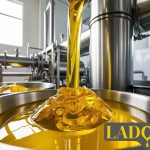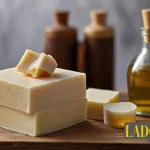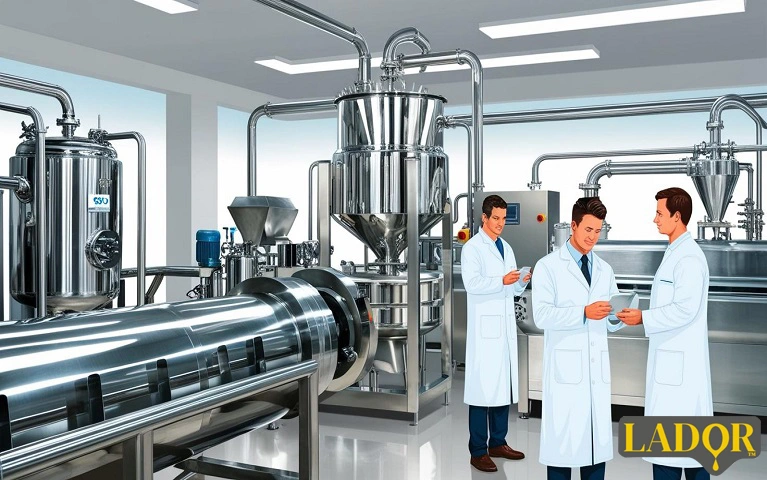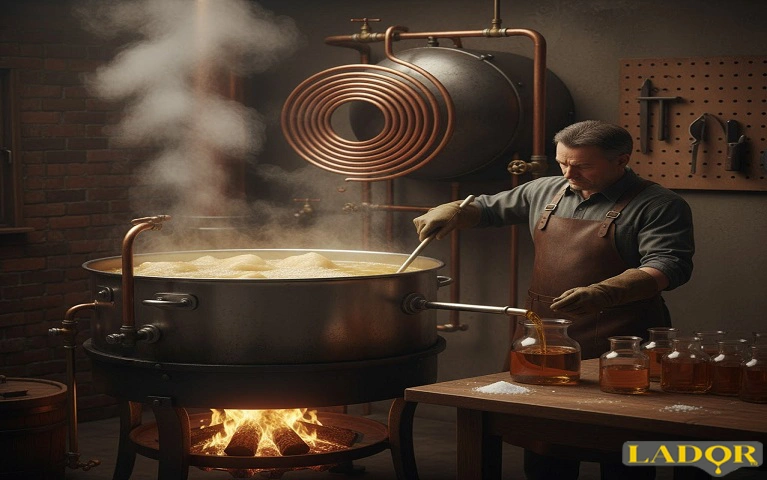

Fats used in the production of grease are considered one of the key components in the science of lubricants, as the type of base fat has a direct effect on characteristics such as thermal stability, oxidation resistance, load-bearing behavior, and compatibility with additives. This article explores this topic – stay tuned..
Greases are among the most important industrial lubricants used in harsh operating conditions such as high pressures, low speeds, varying temperatures, and locations where continuous access to lubricant is not possible. The basic formulation of greases consists of three main components: base oil, thickener (soap), and additives. Among these components, the type of fat or base oil plays a fundamental role in determining the performance properties of the grease. It is the fats that determine the lubricating power, thermal stability, oxidation resistance, load-carrying capacity, and even the environmental compatibility of the grease.
Before the development of mineral and synthetic oils, most greases were produced using animal or vegetable fats. Although their share has decreased today, they still have specific applications.
The most common animal fats used in grease production are lard and beef fat (tallow). Due to their saturated fatty acids, these fats have a high ability to form stable soaps.
Advantages:
Disadvantages:
Vegetable oils such as castor oil, coconut oil, cottonseed oil, and soybean oil were also used in some older greases.
Characteristics:

Mineral oils are currently the most common base oils used in grease production. These oils are obtained from crude oil refining and fall into two main categories:
The most widely used type of base oil for grease formulation.
Advantages:
These oils provide different properties due to their ring-shaped molecular structure.
Advantages:
With technological advancements, synthetic oils have gained an important role in industrial greases due to their superior performance under harsh conditions.
The most stable and commonly used synthetic oil in advanced greases.
Advantages:
Commonly utilized in high-temperature-resistant greases.
Advantages:
Used in special greases such as water-resistant greases or greases compatible with elastomers.
Advantages:
Selecting the proper base oil has a direct impact on the following properties:
Selecting an appropriate base oil for a grease depends on the operating conditions and the performance characteristics required. The most important factors include:
At high speeds, low-viscosity oils with good shear stability should be used to prevent heat and friction buildup. At low speeds, higher-viscosity oils perform better.

Ala oil Sepahan, operating under the brand name Lador, is one of the leading manufacturers in the field of animal, poultry, and industrial oils. With an experienced team and modern industrial machinery, this company has succeeded in supplying high-quality oils and industrial powders to the market. Among Ladorfat products are tallow oil for grease production, tallow oil for chemical materials, bovine suet oil, bone oil, and many other products.
Base fats and oils are among the most important components of grease, directly influencing its performance characteristics. From natural fats to advanced mineral and synthetic oils, each has specific capabilities and is used for particular operating conditions. For price inquiries and more information, contact our consultants at Ladorfat.